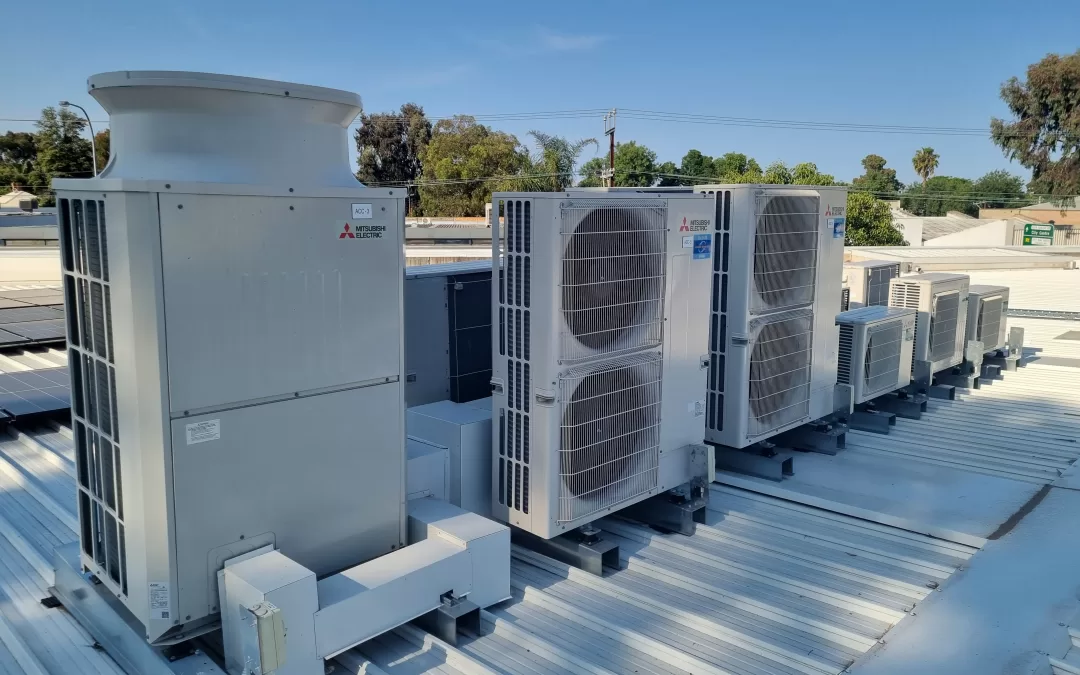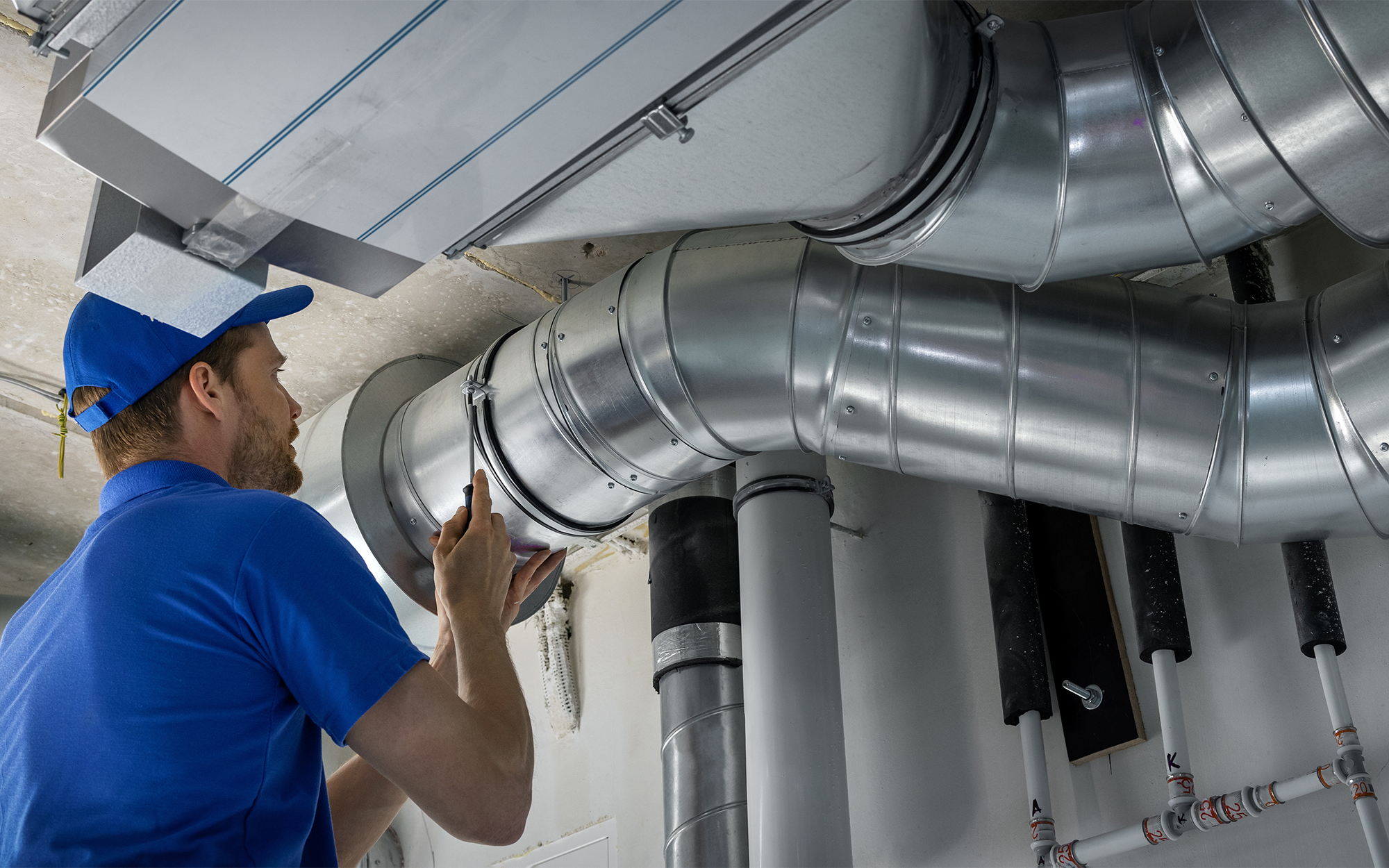Find out how HVAC experts recommend advanced climate control solutions
Wiki Article
Exploring the Crucial Elements of an Efficient Cooling And Heating System
An efficient heating and cooling system is developed on numerous crucial parts that operate in consistency. Each part, from the thermostat to the ductwork, plays an important duty in maintaining convenience and energy efficiency. Understanding these elements is crucial for enhancing performance and boosting indoor air quality. As one takes a look at these components, the complex partnerships in between them expose understandings into enhancing total system performance. What certain factors contribute most to this efficiency?The Function of the Thermostat in A/c Performance
Commonly forgotten, the thermostat plays a crucial duty in the performance of Heating and cooling systems. This small tool functions as the primary nerve center, regulating temperature setups and making certain suitable comfort within an area. By properly picking up the ambient temperature, the thermostat communicates with the air, heating, and ventilation conditioning devices to keep the desired climate
An efficient thermostat decreases power usage by activating the cooling and heating system just when essential, thereby preventing too much home heating or air conditioning. Modern clever and programmable thermostats boost this efficiency even more by enabling customers to establish routines and from another location change setups, adapting to daily regimens.
The placement of the thermostat is essential; inappropriate location can lead to incorrect temperature readings, resulting in inefficient operation. Overall, a well-functioning thermostat not only boosts convenience but likewise contributes considerably to energy cost savings and the longevity of the a/c system.
Comprehending the Relevance of Air Filters
Air filters offer a vital function in heating and cooling systems by ensuring that the air flowing within a room remains clean and healthy and balanced. These filters trap dirt, irritants, and other toxins, stopping them from being recirculated throughout the setting. By recording these fragments, air filters add to boosted indoor air quality, which can substantially profit occupants' health and wellness, especially those with allergies or breathing conditions.Furthermore, keeping clean air filters enhances the performance of a/c systems. Clogged up filters can restrict air movement, causing the system to work more challenging to keep preferred temperature levels, resulting in boosted power consumption and greater utility expenses. Routinely replacing or cleansing filters is a vital maintenance step that can lengthen the life-span of heating and cooling tools. Ultimately, understanding the importance of air filters enables homeowners and building supervisors to take positive procedures to assure a well-functioning, reliable heating and cooling system that advertises a comfortable and safe interior setting.

The Functionality of the Furnace and Heatpump
Furnaces and warmth pumps are vital elements of cooling and heating systems, accountable for giving warmth during cooler months. Heaters run by home heating air through combustion or electric resistance, then distributing it throughout the home using air ducts. They normally use fast heating and can be fueled by natural gas, electrical power, or oil, relying on the system kind.Alternatively, heatpump transfer heat instead than generate it. They remove warmth from the outdoors air or ground, even in reduced temperature levels, and move it inside your home. HVAC experts. This dual functionality permits heatpump to likewise supply cooling in warmer months, making them versatile options for year-round climate control
Both systems call for proper upkeep to ensure performance and longevity. While heaters excel in extreme cool, warmth pumps can be useful in modest climates. Recognizing their distinct functionalities help home owners in selecting the most ideal alternative for their home heating requires.
Exploring the A/c System
The a/c unit is an important element of cooling and heating systems, readily available in numerous kinds to suit various requirements. Comprehending the performance rankings of these systems is necessary for making educated choices concerning power intake and cost. This area will certainly check out the varied types of air conditioning system and clear up how effectiveness ratings effect performance.Kinds of Air Conditioners
While various aspects influence the selection of cooling systems, recognizing the various types offered is important for property owners and structure managers alike. Central air conditioning conditioners are designed to cool down entire homes or structures, using a network of ducts for air movement. Window devices provide an even more localized solution, perfect for tiny spaces or single areas. Mobile ac system supply flexibility, allowing customers to relocate the unit as needed. Ductless mini-split systems are an additional alternative, incorporating the performance of central systems with the comfort of zoning, as they require no ductwork. Ultimately, geothermal systems harness the earth's temperature level for energy-efficient cooling. Each kind comes with distinctive advantages, making informed options important for effective environment control.
Efficiency Scores Discussed
Comprehending performance ratings is crucial for choosing the best a/c unit, as these metrics give insight right into the system's performance and power consumption. One of the most Website usual score for air conditioning system is the Seasonal Energy Effectiveness Proportion (SEER), which determines the cooling result during a typical cooling period split by the overall electrical power input. A higher SEER suggests far better performance. Additionally, the Energy Performance Ratio (EER) is utilized for gauging effectiveness under details problems. An additional essential metric is the Power Star certification, which signifies that an unit fulfills strict power performance guidelines. By reviewing these rankings, consumers can make informed options that not just optimize convenience however likewise decrease energy costs and environmental effect.The Value of Ductwork and Air flow
Efficient ductwork design and air flow administration play essential roles in the total effectiveness and efficiency of HVAC systems. Proper ductwork guarantees that conditioned air is distributed evenly throughout an area, decreasing temperature variations and boosting convenience. Well-designed air my link ducts decrease resistance to air flow, lowering the workload on heating and cooling tools and inevitably lowering energy consumption.Air movement monitoring includes tactically placing vents and signs up to improve the flow of air. This prevents usual problems such as cold or warm places, which can take place when airflow is blocked or improperly balanced. In addition, the ideal duct products and insulation can even more boost effectiveness by decreasing warmth loss or gain during air transportation.
An efficient ductwork system not just adds to energy financial savings however can additionally prolong the life expectancy of a/c devices by reducing unnecessary stress (HVAC experts). Subsequently, understanding the importance of ductwork and airflow is crucial for achieving peak cooling and heating system efficiency
Normal Upkeep Practices to Boost Performance
Routine upkeep practices are crucial for guaranteeing peak efficiency of cooling and heating systems. These methods consist of regular evaluations, cleaning, and essential repairs to keep the system running successfully. Frequently transforming air filters is vital, as blocked filters can block air movement and decrease performance. Furthermore, specialists must examine and tidy evaporator and condenser coils to stop overheating and power waste.Annual specialist evaluations are likewise recommended, as qualified technicians can recognize potential issues prior to they rise. Oiling relocating components lessens deterioration, contributing to a longer life expectancy for the system. Ensuring that the thermostat functions properly aids in maintaining optimal temperature level control.
Often Asked Inquiries
How Often Should I Replace My Thermostat?
Thermostats need to commonly be replaced every 5 to 10 years, depending on use and innovation advancements. Regular checks are a good idea to ensure peak efficiency, specifically if experiencing inconsistent temperature control or increased power expenses.What Size Air Filter Is Ideal for My Cooling And Heating System?
The finest dimension air filter for a heating and cooling system varies by unit design. Typically, it's crucial to seek advice from the proprietor's guidebook or inspect the existing filter measurements to ensure peak performance and air high quality.Can I Mount a Heatpump Myself?
Setting up a heatpump separately is possible for skilled people, however it needs knowledge of regional codes and electrical systems. Working with an expert is recommended to guarantee appropriate installment and suitable system performance.Exactly how Do I Know if My Ductwork Is Effective?
To determine ductwork effectiveness, one should check for leakages, action airflow at vents, evaluate insulation high quality, and review temperature differences between supply and return ducts. Professional assessments can provide thorough insights into general efficiency.What Are Indicators My HVAC Requirements Immediate Upkeep?
Signs that a cooling and heating system requires prompt upkeep include unusual noises, irregular temperature levels, raised energy bills, unpleasant smells, and frequent cycling. Dealing with these concerns quickly can stop further damages and warranty optimal system efficiency.Air filters offer a necessary function in Heating and cooling check my blog systems by guaranteeing that the air circulating within a room continues to be tidy and healthy. Additionally, preserving tidy air filters boosts the efficiency of HVAC systems. Ductless mini-split systems are another option, combining the effectiveness of main systems with the benefit of zoning, as they need no ductwork. Understanding effectiveness scores is important for choosing the best air conditioning system, as these metrics give insight right into the system's efficiency and power intake. The ideal dimension air filter for a Cooling and heating system differs by system style.
Report this wiki page